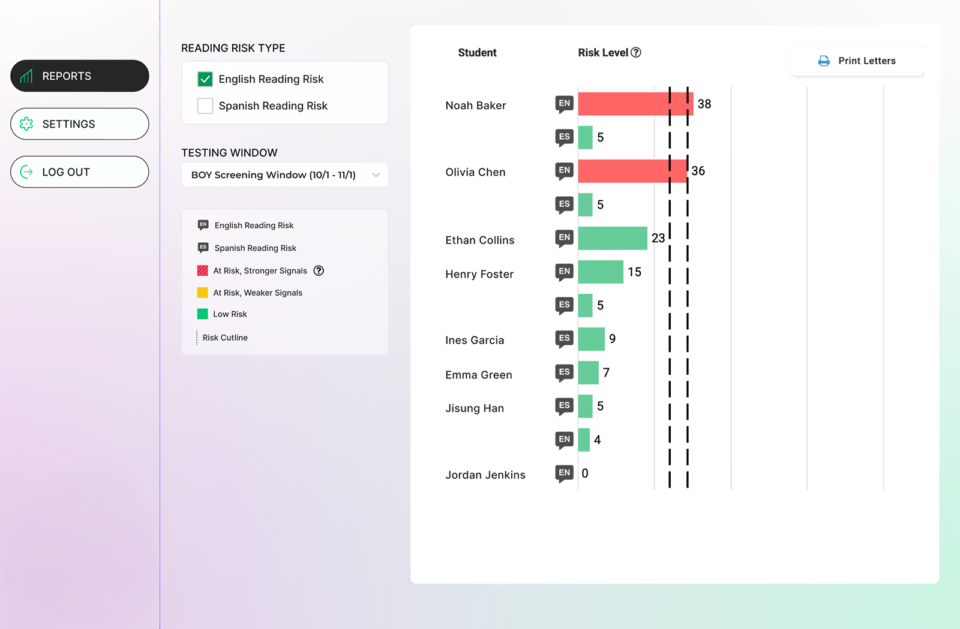-
Core Curriculum
The New Jersey Literacy Framework aims to improve literacy.
Recent NJ Literacy Legislation on student literacy mandates the use of universal literacy screeners and high-quality instructional materials (HQIM) for Grades K–3 students to ensure they are reading proficiently by Grade 4. HMH supports these requirements with evidence-based solutions that drive growth for every student.
Support at-risk students with our universal literacy screener
Identify risk factors for dyslexia or other reading difficulties with Amira ISIP’s dyslexia screener. Recommended by the New Jersey Student Literacy Working Group, Amira incorporates:
- Dyslexia risk screening that educators can administer to an entire class in less than 20 minutes
- Micro-interventions rooted in the science of reading to help students master foundational skills
- Oral reading fluency assessment
- Granular skills reporting dashboards to measure progress
- 1:1 reading tutoring in English and Spanish

Boost literacy outcomes with HQIM
Build foundational reading skills for students in Grades K–6 with HMH Into Reading®, also available in Spanish. The program features:
- Research-based content aligned with early literacy training
- A structured literacy instructional design
- Comprehensive standards coverage
- Actionable reports that measure progress and show growth opportunities
- Professional learning that supports evidence-based literacy instructional practices

Awards and accolades

Digital Promise Certification
Amira

2023 SIIA CODiE Winner
Amira, Into Reading

2023 EdTech Awards Cool Tool Finalist
Amira
Meet NJ literacy mandates with our evidence-based assessment and curriculum.
Insights and resources
We’ve got you covered for the New Jersey Literacy Framework! Find additional support below.

Get the answers to commonly asked questions like, "What is structured literacy and how can I implement the approach?"

This blog explores the “phonological awareness umbrella” metaphor in depth, delving into the skills it encompasses and actionable strategies for classroom instruction.

Learn why educators nationwide should assess their instructional programs to determine whether they are designed to help students overcome learning loss due to COVID-19.

This article answers the question, what is oral reading fluency? It provides fluency teaching strategies after defining fluency and explaining why it’s important.

In this blog, we break down the importance of building background knowledge in reading, and provide ways to build and strengthen comprehension.

Explore evidence-based reading comprehension strategies that can promote deeper comprehension among your students.
Meet NJ literacy mandates with our evidence-based assessment and curriculum.
Thank You! Please check your email for next steps
Thank You! Please check your email for next steps











